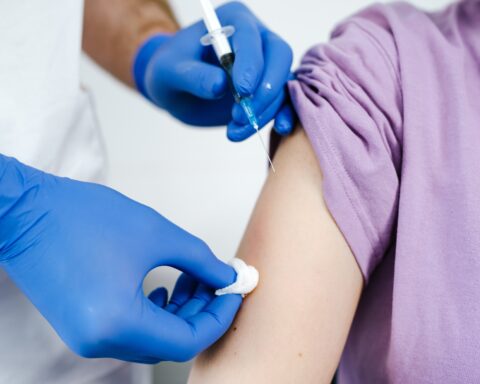Have you ever heard your child mention a sore throat that just won’t go away or noticed a small bump in their mouth? While it’s easy to brush off these symptoms as minor, they might be signs of something more serious, like oral HPV. If you’re a mother of an adolescent, understanding HPV in the mouth is crucial. Let’s explore whether this condition is curable and, most importantly, how you can help your child manage it effectively.
What is Oral HPV?
Human Papillomavirus (HPV) is a common virus that affects different parts of the body. When it occurs in the mouth or throat, it’s referred to as oral HPV. This type of HPV can spread through oral contact, making it something that parents of adolescents need to be aware of, especially as children become more socially active.
Oral HPV might not always show symptoms, which can make it tricky to detect. When symptoms do appear, they can include warts or lesions in the mouth, a sore throat, or discomfort while swallowing. It’s important to note that not all cases of oral HPV lead to serious health problems, but some types of HPV are associated with an increased risk of oral cancers.
Is HPV in the Mouth Curable?
The big question on many parents’ minds is whether HPV in the mouth is curable. The truth is, while there is no cure that can completely eradicate HPV from the body, the immune system often clears the virus on its own over time. In many cases, the body’s immune response can suppress the virus to the point where it’s no longer detectable and doesn’t cause any symptoms.
However, if oral HPV causes visible symptoms, such as warts or lesions in the mouth, these can be treated effectively to reduce discomfort and prevent further complications. The goal of treatment is to manage the symptoms and support the body’s natural ability to control the virus.
How to Treat Oral HPV in Adolescents
If your adolescent is diagnosed with oral HPV, there are several steps you can take to help them manage the condition and support their health.
1. Strengthen the Immune System
A strong immune system is one of the best defences against HPV. Encouraging your adolescent to maintain a healthy lifestyle can help their body fight off the virus more effectively. This includes a balanced diet rich in fruits and vegetables, regular physical activity, and getting enough sleep. Stress can weaken the immune system, so teaching your child relaxation techniques like meditation or deep breathing can also be beneficial.
In some cases, healthcare providers might recommend supplements to boost the immune system, but it’s important to focus on a healthy lifestyle as the foundation.
2. Maintain Good Oral Hygiene
Good oral hygiene is key in managing oral HPV. Regular brushing and flossing help to keep the mouth clean and reduce the risk of additional infections. Using a mouthwash that doesn’t irritate the mouth can also be helpful, especially if your adolescent has any warts or lesions.
It’s important to remind your child to avoid sharing toothbrushes, utensils, or anything that comes into contact with their mouth to prevent the spread of the virus.
3. Avoid Irritants
Oral HPV can cause lesions or warts in the mouth, which can be sensitive and easily irritated. To prevent further discomfort, it’s important to avoid irritants such as spicy foods, acidic beverages, or anything that might aggravate the mouth. Soft, bland foods might be easier for your child to eat if they’re experiencing discomfort.
If your child has a habit of chewing gum or biting their nails, it’s a good idea to discourage these habits, as they can introduce more bacteria into the mouth and irritate any existing lesions.
4. Consider Professional Treatments
In some cases, professional treatments might be necessary to manage oral HPV. If warts or lesions are causing significant discomfort or are not going away on their own, a healthcare provider might suggest treatments to remove them. These can include procedures like cryotherapy (freezing the warts), laser therapy, or other minor procedures to remove the growths.
It’s important to follow up regularly with a healthcare provider to monitor the condition and ensure that any treatments are effective. While these treatments don’t cure the virus itself, they can significantly reduce symptoms and improve your child’s quality of life.
5. Educate Your Adolescent
Education is crucial when dealing with HPV in the mouth. It’s important to talk to your adolescent about how HPV is transmitted and how they can reduce the risk of spreading it to others. Encourage open communication so they feel comfortable discussing any concerns or symptoms they might have.
Make sure your child understands the importance of regular health check-ups and following any treatment plans recommended by their healthcare provider. Educating them on the potential risks and symptoms of HPV can empower them to take charge of their health and make informed decisions.
6. Monitor for Symptoms
Even if oral HPV doesn’t cause immediate symptoms, it’s important to keep an eye out for any changes in your child’s health. Regular dental check-ups can help detect any potential issues early on, and it’s important to seek medical advice if you notice any unusual symptoms, such as persistent sores in the mouth, difficulty swallowing, or unexplained pain.
Keeping a record of any symptoms can also be helpful in monitoring the condition and ensuring that any necessary treatments are started promptly.
Final Thoughts
HPV in the mouth can be a worrying diagnosis, especially for parents of adolescents. While there’s no cure for the virus itself, many cases of oral HPV clear up on their own with the support of a strong immune system. By focusing on maintaining good oral hygiene, avoiding irritants, and considering professional treatments if necessary, you can help your child manage their symptoms and reduce the risk of complications.
Open communication and education are key to helping your adolescent understand and deal with oral HPV. Remember, the goal is to manage the condition effectively and support your child’s overall health. With the right approach, you can help them navigate this challenge and stay healthy and confident.






